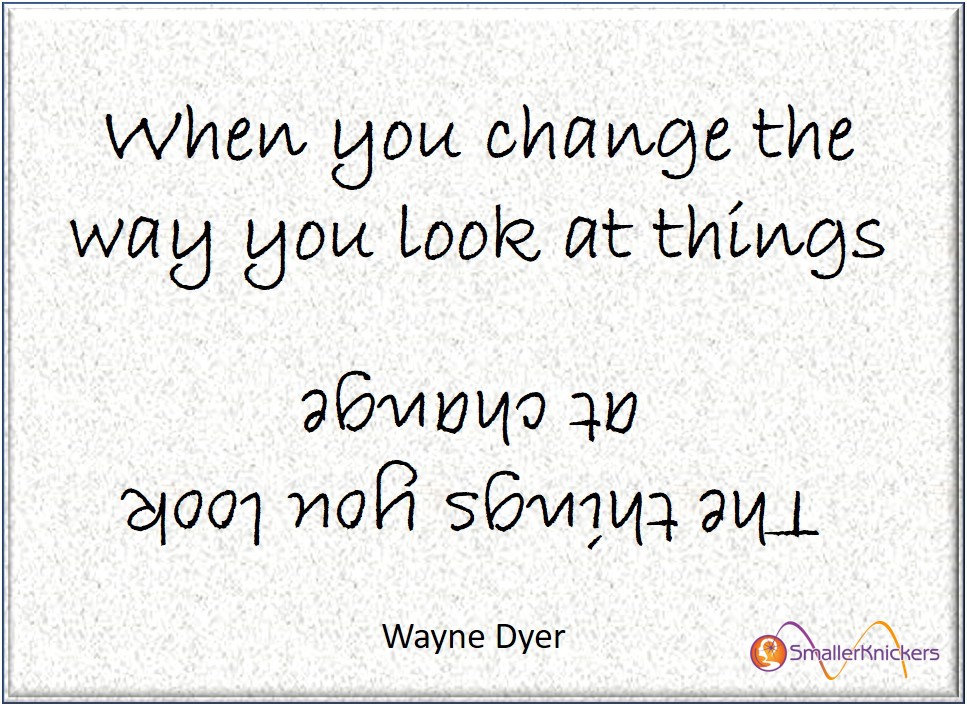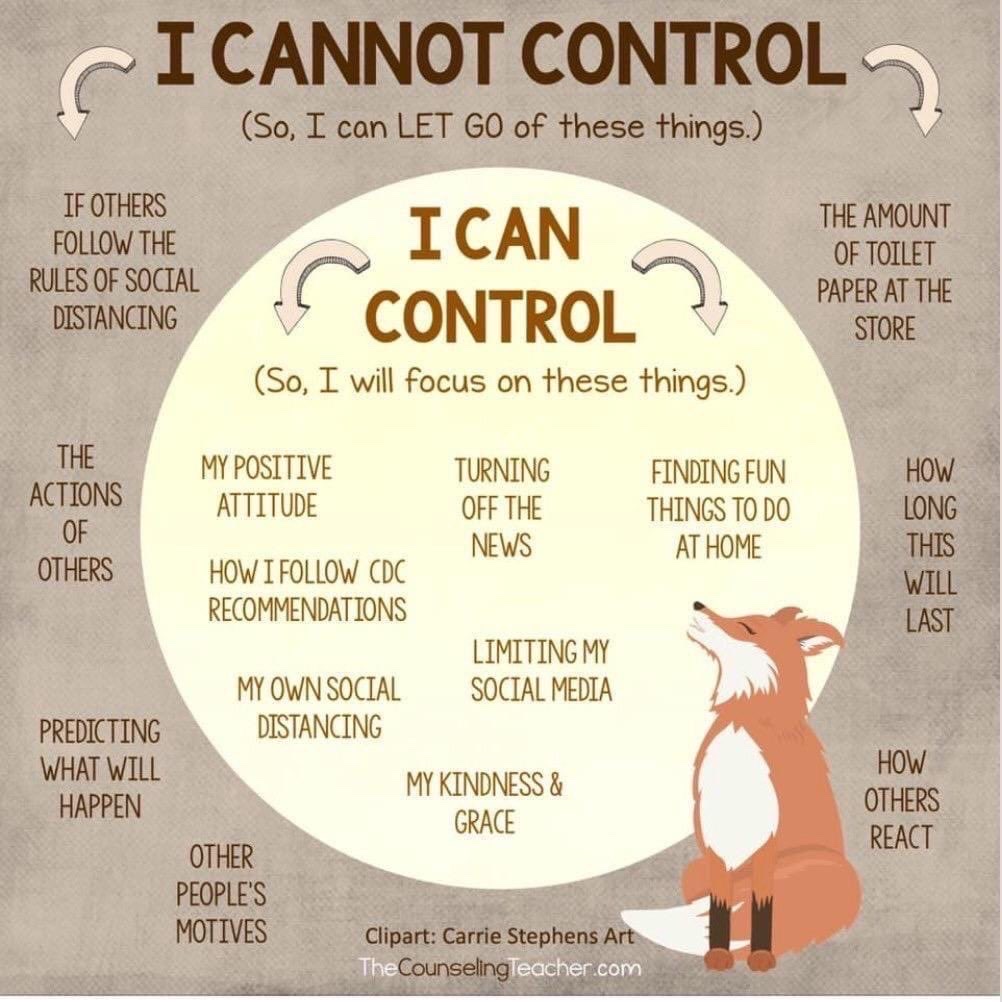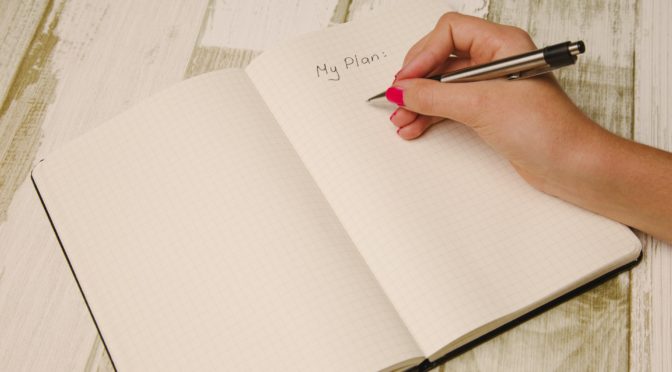As humans, uncertainty is something we don’t really like. And we’re current all experiencing the biggest period of uncertainty in our history.
Uncertainty is contagious, fuelling anxiety in many of us. We try to pay attention to every opinion or scenario, ending up feeling overwhelmed. And that’s because uncertainty triggers the fear part of our brains.
Fear is a normal human emotion. Our brain has developed considerably over millions of years. The earlier part allowed us to sense threat from tigers and mammoths, so that we could protect ourselves and survive. It looks for any threat so that we can fight, run away or freeze. As we advanced, our brains developed the ability to plan, become aware of ourselves, be creative. The problem was it also gave us the ability to worry, to think negatively (about life and ourselves) and become anxious about the future.
But there’s also a positive, in that we can learn to take back control, once we become aware of the emotions that we’re experiencing. We are responsible for our own thinking and our own behaviours – not matter how much we might try and blame others or the situations we’re in. The situation may be out of our control, but how we react to it is.
Our emotions are great signals for us to become aware of and be curious about. They hold useful messages. We don’t “have to” be positive all the time, or beat ourselves up if we feel negative from time to time. Give yourself a break, as it’s OK to not be OK for a while.
However, staying in a negative state can adversely affect your mental and physical health in the long run. While fear helps us survive, when mixed with emotions around uncertainty, it can lead to something bad for our health: anxiety.
When we are in a negative emotional state like anxiety, we move into Fight, Flight or Freeze. When we’re in this mode, we also tend to see more negatives and this ends up spiralling out of control. (This is bad… and this happened…. and then this …. and then this etc).
And when we worry, our worries can seem huge. We think if we worry about something, we’re more prepared. But actually the opposite is true. If we stay in this “survival” mode for long it can increase feelings of irritability and low mood, impacting our focus, clarity and logical thinking. Who wants to live like this for any length of time?
But we can, and do, get out of this spiral of negativity. We can start to utilize another part of our brain that gets a buzz from seeing positives, can make connections, can be creative and find flexible solutions to our current situations. Not only is this better for your mental health, it also has a better and significant impact on your body’s health too.
So, how do we dial down the negativity and dial up the positivity?
Below are a few suggestions for you to try. You may find one that seems easier for you to do every day, or do a different one each day, or mix and match as you want.
STAY IN THE MOMENT
When we’re having negative emotions (like anger, sadness, guilt, fear, hurt), we’re thinking about our past. When we’re anxious or worried, we’re thinking about our future. Staying in the moment (in the NOW) helps alleviate these emotions, reducing their power. Stay in the here and now, not too many steps or days ahead. If you start to wander too far, bring your thinking into what is right in front of you in that moment and concentrate on it for a few minutes.
MEDITATION
Meditation is about engaging in a process of thinking that allows thoughts to just come and go. This is a powerful way to bring yourself into NOW. There are apps and videos online that you can use. For those new to this, we will upload a 10 minute meditation shortly.
BREATHE
When you’re feeling anxiety, take a breath and allow yourself a few seconds of calm.
• Inhale through your nose for five counts
• Hold your breath for two to four counts
• Exhale slowly through your mouth for seven counts.
• Allow your rib cage to rise and fall without forcing it
SIX POSITIVES
When you start to recognise positives, this signals the brain to find even more of them! They become easier to find. Just like training your body muscles by regularly practicing a technique, you can do the same for your brain. So, every day, write out 6 positive statements about that day. They can be about anything, big or small, but must be positive. For example, a bird singing, a chat with a friend, achieving a new exercise, a delicious cup of coffee, the moon shining, the radio playing your favourite song, the perfect parking spot – the little things that make life enjoyable. Writing them down also gives you something nice to look back on and remember too.
JOURNALLING
If you start to feel overwhelmed, write out your concerns, thoughts and beliefs in a journal. Getting them out of your head and onto the paper stops them going round and round in your mind. Then look at what you’ve written and challenge whether they are real or something that you think “might” happen. If they’re real, can you do anything about it, or is it out of your control? If it’s in your control, what is the one small next step that you can do to help solve it? Just one step at a time.
CONNECTION
Connection is one our biggest human needs, and the current situation is stopping our normal ways of feeling connected to others. Use the various online facilities and those on your phone to talk to friends and family. It’s OK to ask for help and to ask for a chat.
Making more time for phone calls with your friends and family is fantastic, but that leaves a lot of free time either side of those calls. Connection is often about just being with someone, without having to saying anything. This is a challenge with social distancing and isolation. So if you are alone, you could organize a time with a loved one, where you sit down and watch a film, work together, read together etc (but in a different way to normal). Each of you sets up your phone, tablet or laptop, Facetime or one of the video conferencing sites, where you can see the other person. And you can sit quietly together, without having to say anything at all.
Helping others is another form of connection (be that a small gesture, a phone call, giving assistance) – it helps the other person, but you get a dopamine and feel good hit too.
EXERCISE
Rather than being tempted by the chocolate bar, comfort food or glass of wine for a quick “feel good” boost, use exercise to reduce anxiety and stress. Exercising helps to release endorphins which give you a natural high. This helps to relieve the stress you’re feeling, allowing your body to relax and break the “fight or flight” cycle it’s stuck in. Find enjoyable ways to exercise indoors, take a walk round the garden (or other outdoor places, where you can).
LAUGHTER
It’s perfectly OK to laugh – in fact, us humans are very good at finding the funny side of life to get us through the tougher times. You’ll be able to cope better and see worries as less important, if you can start to see the humour around it. Find a fun film or TV show, call friends to share funny stories, play games with the kids etc. Just think, 2020 will also be known for it’s interesting hair styles!
Use Moodshifters, which help you change your mood from negative to positive in an instant. Think of two or three different events in your life that have really made you laugh, giggle, feel extremely happy. Clearly visualize and remember what you saw, heard and felt emotionally. When you need a mood boost, then think of those times and dwell in the good feelings. It really works, as the same “feel good” hormones flow round the body, just like when it originally happened.
Smile – Strange as it may sound, forcing a smile onto your face can often make you feel happy. This is one of the strange ways in which we humans are wired. Try it – you may be surprised!
LISTEN TO MUSIC
Listening to music lifts our spirits. We play our favourite song and a smile spreads across our faces. Find the music that works for you – you can dance around the room to the upbeat ones, or chill to the calming ones. You can always take a photo of you dancing and send it to friends and family – bringing in connection and laughter too!!
CHILL TIME
Take some time every day to do what makes you feel good. This could be a warm bath, massage, walk in the countryside, or reading a book in the sunshine for instance.
MAKE YOUR OWN PLANS
Set some actions or targets for your day or week, write up a planner of the things you want to achieve, list the tasks you want to accomplish that you’ve not had time to do before. Just small actions are required, and they’ll give you a bit of certainty in your life! Remember they’re there for guidance and not something to beat yourself up with.
Keep a sense of normality wherever you can, such as getting up at the same time you usually do, eating at your regular times etc.
BE CREATIVE
Solitude allows creative thoughts to blossom. Research suggests that people are better able to conceive their best ideas alone. How can you use your creativity for your future? You can come up with wonderful new ideas to bring laughter to others, find new ways of helping others etc. Are there new hobbies you’d like to try, courses you’ve always wanted to do, a book to write or an artist inside you just waiting to be let loose on the world??
Your day is yours to make the most of.
PROTECT YOUR OWN ENERGY
Other people can drag you into their dramas or leave you feeling exhausted after talking to them. They’ll want you to agree with their view about how bad things are. But this won’t make you feel better. Protect your energy levels. They are responsible for their minds, you are responsible for yours. So, you can try one of the tools here to bring you back into your own positive state. And if you feel OK you certainly don’t need to feel guilty about it.
KNOW THIS TIME WILL PASS
Nothing stays the same for very long. There will be a time when this will be in the past, albeit having made history! You can still think about plans and dreams for the future.
BELIEVE IN YOURSELF
We are amazing and resilient, adaptable, clever and capable of change for the good. We are unique from other species in that we have the ability to control our behaviour, to train ourselves to be emotionally fit and create an inner strength. Our lives are shaped by the difficult times we’ve gone through and learnt from. We are strong and will find a way through our challenges – we always have, and always will. You’ve done it before, you can do it now.
Stay safe, stay inside. When we work together, we all win.













